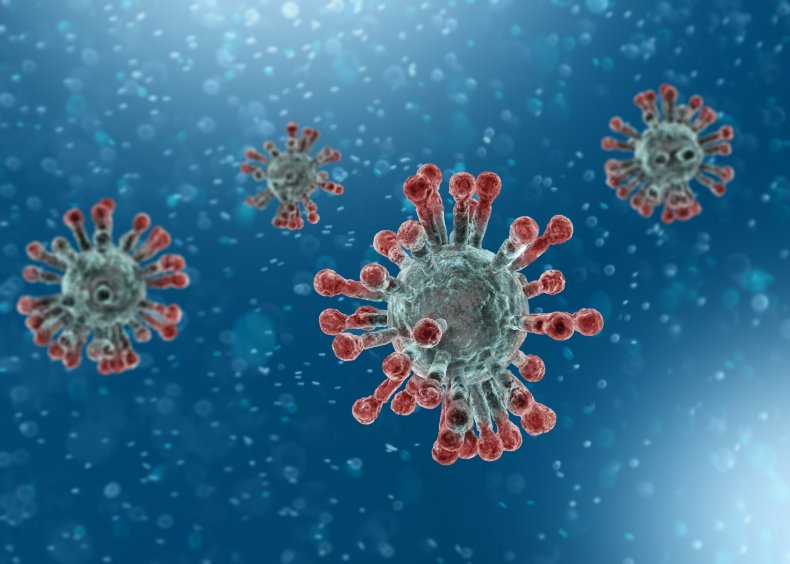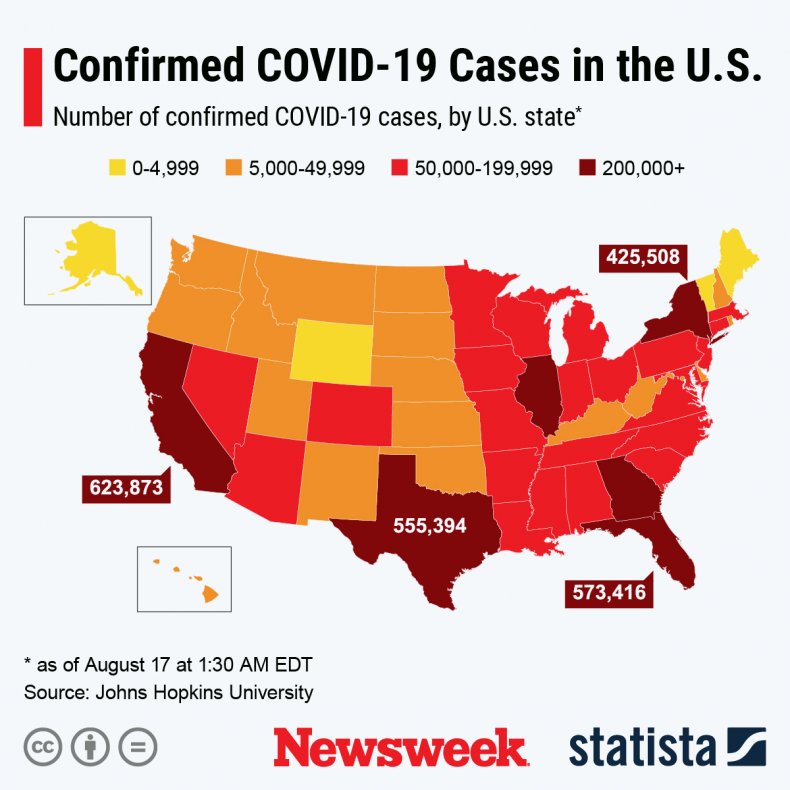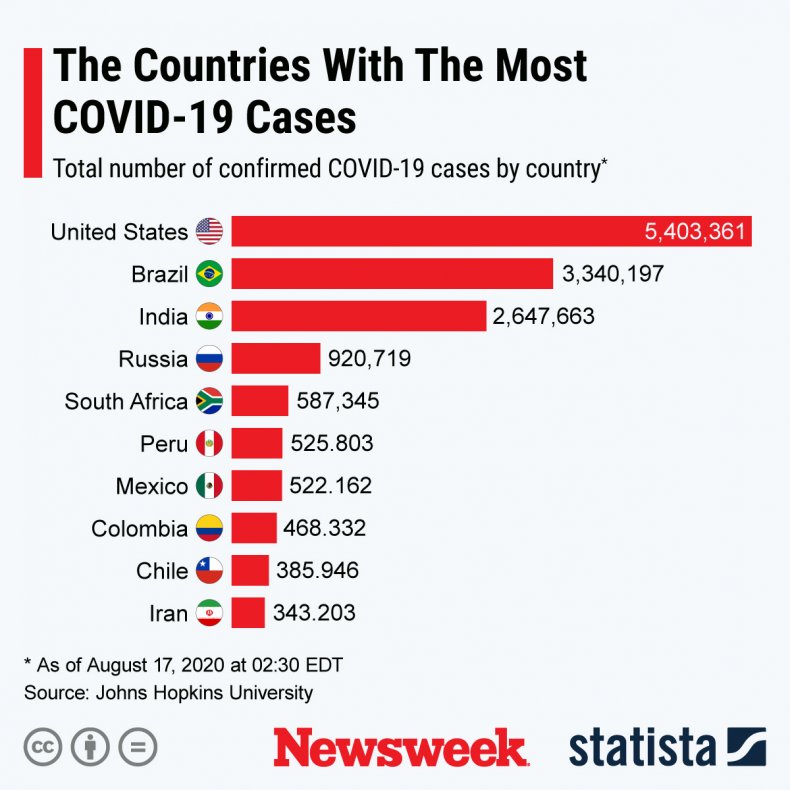As a philosopher of science, I’ve studied and observed science denial for the last twenty years. I’ve gone to a Flat Earth convention in Colorado and, conversely, talked to coal miners in rural Pennsylvania who believe climate change is real. Overall, I have had many encounters with those who choose to deny the facts of science.
Now, we find ourselves in the midst of a global pandemic. COVID-19 has infected 5.4million and claimed the lives of nearly 170,000 in America, and those numbers continue to rise. Despite this, across the U.S. we are seeing many deny the severity of the virus, ignore scientific evidence and reject regulations suggested to curb the spread COVID-19, such as wearing masks.
I have asked myself, why and how this could be possible? If you are thinking the same, it may be useful to know that all of the research I’ve read and experiences I’ve had show one important thing: science denial usually follows the same basic script. There are even five main tropes of science denial reasoning that have been identified—and I have watched as they have appeared numerous times during the COVID-19 pandemic:
1. Cherry picking evidence: Typically this would involve selecting data that serves your denial, even if it is against the common consensus of science. During COVID-19 I have observed this as; “COVID-19 is just like the flu,” “most people recover,” “some people have no symptoms.” By encouraging selective focus on relatively mild cases, COVID-19 deniers can downplay the risk of serious complications and death.
Get your unlimited Newsweek trial >
2. Belief in conspiracy theories: “COVID-19 is a hoax,” “it’s part of a deep state plan to undermine Trump,” “it’s part of Bill Gates’s strategy to depopulate the Earth,” “it’s caused by 5G cell towers.” I’m paraphrasing, but we have all heard similar claims during this pandemic. Conspiracy theories are one of the most toxic forms of human reasoning, because they can take both evidence and the lack of it as support for their theory. This is anathema to scientific reasoning.
3. Reliance on flawed “experts”: During an April 23rd news briefing, I watched as President Trump suggested that COVID-19 could be treated by bringing light “inside the body” or injecting ourselves with disinfectants. Later, he championed the work of Dr. Stella Immanuel for her claim that hydroxychloroquine was a potential treatment and her belief that masks were unnecessary. Later still, it emerged that some of her other opinions included the idea that gynecological problems were due to people having sex with demons in their dreams.
4. Insistence that science must be perfect: The speed and severity at which COVID-19 has spread has caused unprecedented challenges for scientists and governments alike, yet you may have heard deniers asking why the World Health Organization (WHO) changed their recommendation on masks or why public health officials keep changing their minds? The answer of course is that scientists learn over time.
5. Illogical reasoning: Trump has claimed that the only reason the U.S. is showing more cases is that we are doing more testing than other countries. This has been proved false when fact checked, as the increase in testing has aligned with a spike in people testing positive. If it were true, the number of people testing positive would be dropping as more are tested.
Get your unlimited Newsweek trial >
The graphic below, provided by Statista, illustrates countries with the most COVID-19 cases.
Science denial doesn’t usually come out of nowhere. I have observed as the pandemic in the U.S. has been politicized, with President Donald Trump and his administration repeatedly questioning and downplaying the scientific evidence and facts around the virus. This is particularly interesting when you consider that Dr Antony Fauci has said that there is an “anti-science bias” in the U.S. and that we have a presidential election in November.
But something I believe to be particularly important is that—as evidenced in my own encounters—science denial isn’t just about facts but about identity, too. I have personally witnessed the polarized environment of “us versus them reasoning,” in places such as Flat Earth conventions and within communities who deny climate change.
Within the groups of science deniers I have seen, it’s often enough to find out what the other people on your team believe for you to believe it too. But this means that no amount of evidence will likely convince a science denier, because their beliefs are not simply about evidence in the first place. Their denial also involves who they are and whom they trust.
Yet research has proven that leaving science deniers’ claims unchallenged and unchecked is actually more dangerous than having people who are advocating for scientific fact. So, what do I suggest as methods for talking to a COVID-19 denier and perhaps even changing their minds?
 Microscopic view of Coronavirus, a pathogen that attacks the respiratory tract. Analysis and test, experimentation. getty/iStock
Microscopic view of Coronavirus, a pathogen that attacks the respiratory tract. Analysis and test, experimentation. getty/iStockThere is little empirical literature on this to date, but many anecdotal accounts which show that the best way to change someone’s mind is through personal engagement. This is what builds trust. Not yelling. Not insults. Not hostile remarks in the comments section of a newspaper article. If you read the first-person accounts of anti-vaxxers and others who have changed their minds, it has often been due to a personal encounter with someone who listened to their concerns, treated them respectfully, and demonstrated empathy—then worked in the facts once trust had been built.
If you want to take steps to change the opinion of a COVID-19 denier, here are some important practical tips that I would suggest:
1. Provide more graphs, charts, and tables. Research on climate denial has shown that graphs work better than narrative. Perhaps this explains why coronavirus charts and tables in the upper right hand corner of virtually every newscast these days have been so powerful. General pleas from scientists and doctors to put on a mask is one thing; seeing your own city or state in a “hot zone” can be very persuasive, and I’d suggest exposing COVID-19 deniers to as many graphs as you’re able to.
The graphic below, provided by Statista, illustrates the number of confirmed COVID-19 cases by U.S. state.
 STATISTA
STATISTA2. Emphasize scientific consensus. I’ve read plenty of research on climate deniers which shows that drawing someone’s attention to the consensus opinion of scientists is one of the most effective ways to convince “skeptics,” especially conservative ones. What about showing them this open letter signed by 1,200 U.S. National Academy of Science members to the Trump administration warning the “dismissal of scientific evidence in policy formulation has affected wide areas of the social, biological, environmental and physical sciences.” The letter was reissued in June this year after hundreds more scientists signed the letter in the wake of the pandemic. Denial thrives on doubt, and the idea that scientists disagree is corrosive. Emphasizing consensus is persuasive and can be really useful in conversation with a COVID-19 denier.
3. Stories are powerful. If someone knows another person who has gotten sick with or died from coronavirus, this can be convincing. This is especially true if the person who gets sick is you! In a particularly shocking case, a 37-year-old Ohio man named Richard Rose posted on Facebook claiming that he would not be buying a mask or buying into the “hype” of COVID-19. Later, he posted about how he had gotten COVID-19 and was “very sick”. Within days, he had died.
4. Challenge the five tropes. Whenever possible, I suggest trying to point out to a COVID-19 denier that the strategy they are using is flawed. Research shows that this method of “technique rebuttal” can lessen the impact of science denial, if not on the denier themselves, then at least those who might be vulnerable to denialism.
I used this strategy many times at the Flat Earth International Conference (FEIC) November 2018. Or, if you like, you can try to exploit their weaknesses. If someone is fond of conspiracy theories, how might they react to the fact that both the U.S. and the European Union say they have evidence that the Russian government, despite its denials, has been engaged in a massive disinformation campaign about COVID-19? This isn’t a conspiracy theory, it’s a real live conspiracy! If they deny, say: “Hey, don’t believe me, do your own research.” It just might work.
All of this is, of course, quite challenging to put into practice in a time of social distancing and lockdowns. It’s truly ironic that the best way to change a science denier’s mind is through a face to face encounter, but that is the one thing we cannot do these days—and certainly not without masks—without putting ourselves at risk.
What matters most, though, is not how it is done but that you find some way to break through the wall of partisan identity that supports denial. Zoom isn’t ideal, but it’s better than nothing. Reach out in whatever way you can to listen, show respect, demonstrate warmth, and make a human connection. Perhaps start by letting the COVID-19 denier try to convince you, and see what happens. The antidote to doubt is trust. And the most important way to build trust is to start talking to one another again.
What happens if we don’t? Surveys have shown that once a COVID-19 vaccine becomes available, 50 percent of Americans have said they wouldn’t take it. Recently, there has been a confluence of anti-vaxxer and COVID-19 deniers at some of the anti-lockdown protests. The science deniers seem to be joining forces.
We need more people who believe in science to join the conversation and stop hurling insults or walking away. I believe there is a lot of good to be done by seeking engagement with COVID-19 deniers. Denial can kill; conversation is part of the cure.
Lee McIntyre is a Research Fellow at the Center for Philosophy and History of Science at Boston University. He is the author of The Scientific Attitude: Defending Science from Denial, Fraud, and Pseudoscience (MIT Press, 2019). His new book How To Talk To A Science Denier will be published by MIT Press in 2021. To learn more about his work see www.leemcintyrebooks.com.
All views expressed in this piece are the writer’s own.



















